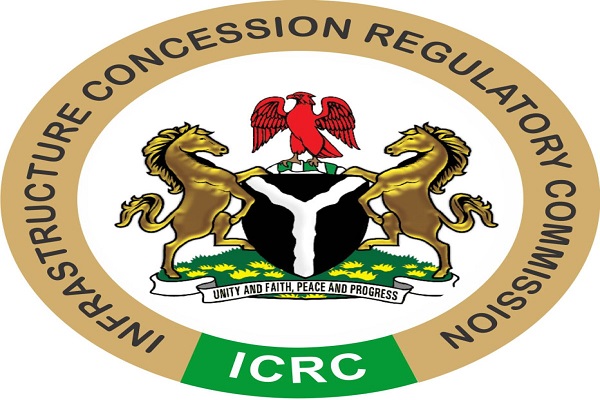ICRC speaks on national carrier controversy

The Infrastructure Concession Regulatory Commission (ICRC) on Thursday absolved Ministry of Aviation of secrecy and noncompliance with rules guiding execution of the public-private partnership on the national carrier project.
ICRC, which handles Outline Business Case for the proposed national airline told National Assembly in a memo due processes and approvals were secured.
The commission, which is leading negotiations for the deal, said Ethiopian Airline has 49 per cent; MRS Oil and Gas, 15 per cent; SAHCO, 15 per cent; Federal Government, five per cent while 16 per cent was yet to be allotted.
ICRC memo showed the proposal was turned down five times by Federal Executive Council under Buhari before it was eventually approved the sixth time.
The body said the project was initiated by Ministry of Transportation in 2016 as part of Aviation Sector Roadmap, and approved by the former President.
It was to be implemented as a public-private partnership, for which ICRC’s regulatory guidance was sought. The ICRC provided the required guidance for implementation in line with requirements of ICRC Establishment Act 2005 and National Policy on PPPS.
Following the guidance provided, the following milestones were achieved:
“Constitution of project steering committee and a project delivery team to guide the implementation of the project. Appointment of a Transaction Adviser – this was done in compliance with the Bureau of Public Procurement Act. Lufthansa Technik was first procured but later changed to Airline Management Group/Traniero after obtaining FEC approval. Development and submission of an Outline Business Case by the Airline Management Group in 2018.
“The structure involved the Federal Government of Nigeria holding five per cent equity, while the remaining 95 per cent is held by private partners (the foreign partner who is required to have undertaken at Ieast 10 years scheduled international operations) will hold a maximum of 49 per cent, while the Nigerian partners hold a minimum of 46 per cent.”
Speaking on the reason why FEC rejected the proposal five times, the ICRC noted, “It is important to note that the OBC was presented to FEC six times before it was approved. This was due to the insistence by FEC that the Federal Government will not contribute any funds to the take-off of the airline as was initially structured. FEC requested that the project should be fully privately financed since it’s viable and bankable,” Ohiani noted.
The ICRC said after 10 weeks of advertisement, only the Ethiopian Airlines consortium submitted a bid and that the project proceeded to the negotiation stage, based on Section 5 (a) of the ICRC establishment Act 2005.
The section states that if after advertisement in accordance with Section 4 of this Act only one contractor or project proponent applied or submits a bid or proposal, or only one contractor or project proponent meets the prequalification requirements, the ministry, agency, corporation, body may undertake direct negotiation without competitive bidding for any contract to be entered into, pursuant to Section 1 of the Act.
On the reason why the documents were yet to be signed, the memo noted, “Several preparatory meetings were held as a prelude to negotiations between the Ministry of Aviation and other government stakeholders before engaging with the Ethiopian Airlines Consortium.
“The commission thereafter requested the implementation of the following before negotiations: the consortium to be a Special Purpose Vehicle; consortium to sign a shareholders’ agreement/updated consortium agreement; the 16 per cent unallotted shares to be fully allotted in compliance with CAMA 2022 and transparency principles; and project to adhere fully to the requirements of the request for proposal document.”
The memo indicated that negotiation was thereafter convened to discuss the issues highlighted for the consortium to implement but had to be suspended when it was observed that members of the consortium were working at cross-purposes.
This, it said, was based on the following observations/complaints by members; that the consortium had not agreed on their structure and function; some members were not privy to the documents under consideration; the consortium had not met on their own and had informed the meeting that the TA to the ministry had been the one calling for all their meetings and guiding their interactions.
It continued, “The consortium was thereafter requested to meet and resolve all their issues and present a common position for the purpose of negotiations and executing the PPP agreement with the government. They were unable to resolve their issues and sign the shareholder’s agreement as requested.
“This led to a letter of complaint from SAHCO expressing its concerns and not accepting the shareholders’ agreement as presented. Ethiopian Airlines responded with justification for the issues raised. Efforts to mediate through physical meetings and correspondences towards ensuring the signing of the shareholders’ agreement are ongoing.
“A meeting of the government representatives was thereafter convened at the ICRC to harmonise the position of the government before engaging in any discussion with the private proponent.”
It said the meeting agreed that every member of the consortium would be required to sign the PPP agreement individually as well as the shareholders’ agreement.
It added that the meeting further agreed that the 16 per cent unallotted shares must be fully allotted; that the project must have duration to comply with the requirements of the ICRC Establishment Act and that all clauses that allocate financing and regulatory risk to the government must be reviewed and adjusted appropriately.
The ICRC said it wrote a regulatory position to all members of the consortium on April 17, 2023, with a review and highlighted issues that needed to be addressed and corrected before the shareholders’ agreement could be signed.
According to the commission, some of the issues included that the Ministry of Finance Incorporated to hold the five per cent Federal Government’s equity and sign the shareholders’ agreement on behalf of the government; full allotment of the 16 per cent unallotted shares in the consortium recognition and valuation of the Bilateral Air Services Agreements as part of Federal Government’s contribution to the project; provide clarity on the status of local airlines currently operating regional and international routes, in view of request for total rights over all the existing BASAs; and “the deletion of the clause that waives sovereign immunity by Nigeria.”
The ICRC added that the ministry convened a negotiation meeting on April 18 and 19, 2023, at the ministry “but could not proceed as representative of the Federal Ministry of Justice cited a court order restraining any action on the project.”
The memo indicated that the next step was for all shareholders to sign the shareholders’ agreement and that negotiation should resume and be concluded once the court order was lifted.
On the next step, the ICRC memo added, “Full Business Case to be prepared and submitted to the ICRC for review and issuance of certificate; presentation to the Federal Executive Council for approval; vetting of draft PPP agreement by Ministry of Justice; and contract execution” the report concluded.
Reacting to the report, a trade union leader in the aviation sector said he had followed the process of the Nigeria Air project from the beginning and was convinced that the right things were being done but had faced a lot of sabotage by people who, for reasons known to them, want to ensure that Nigeria Air does not see the light of day.
The unionist who preferred to be anonymous because of the sensitive nature of the issue, said the ICRC memo had exonerated the former Minister’s position that the process leading to the establishment of the national carrier has been transparent in all ramifications.
An aviation expert who craved anonymity said local airlines are simply afraid of competence and capacities ET will willing to the Nigerian aviation industry.
Speaking in a recent television interview, the Chairman/Chief Executive Officer of Air Peace, Mr. Allen Onyema disclosed: ” Without SACHOL on the deal, Nigeria would have been in trouble.
He stated : ” When you look at the shareholding agreement on Nigerian Air, without SACHOL, Nigeria would have been in trouble. The leadership of the entire management, the CFO, the CEO, all the management positions will be Ethiopians while the deputies will be Nigerians.
” This is farther from the truth. Both the submissions from the Federal Ministry of Aviation and the ICRC confirmed that negotiations were still ongoing and there was firm agreement reached on the structure of the airline. This includes the management composition and other fine details that the were required to smoothly run the airline” so where did Onyema get that from? He queried. The expert also indicated that the ex-Minister, “Sirika was completely not a party to what each shareholder was negotiating and had no powers to decide who gets what. The ICRC was to midwife every step of the way like they’ve done on the project since inception.”



